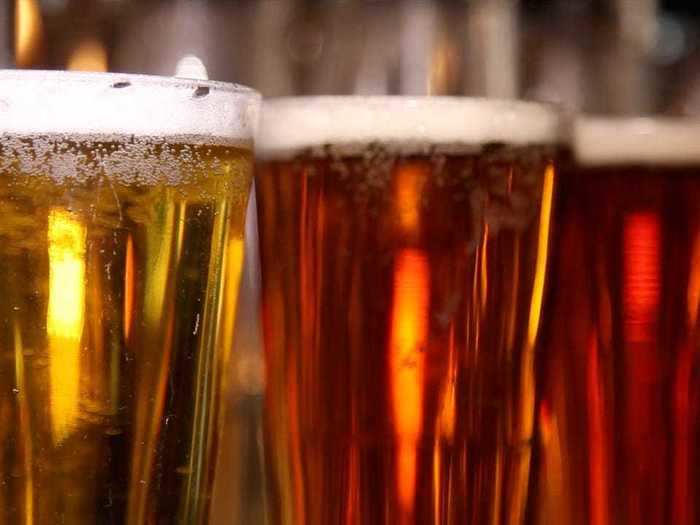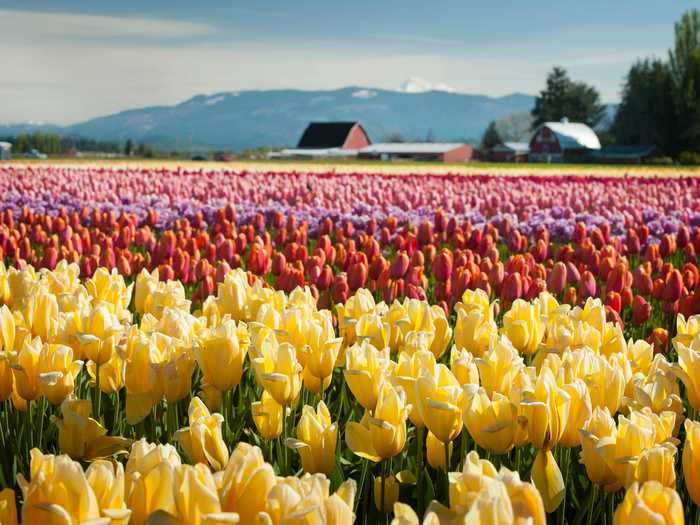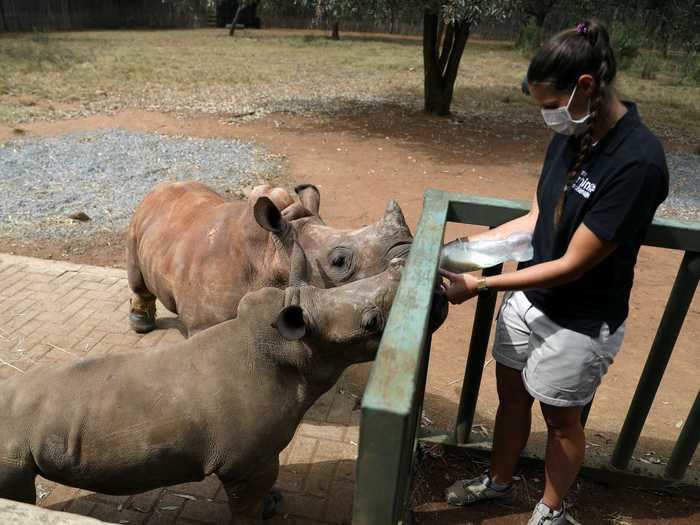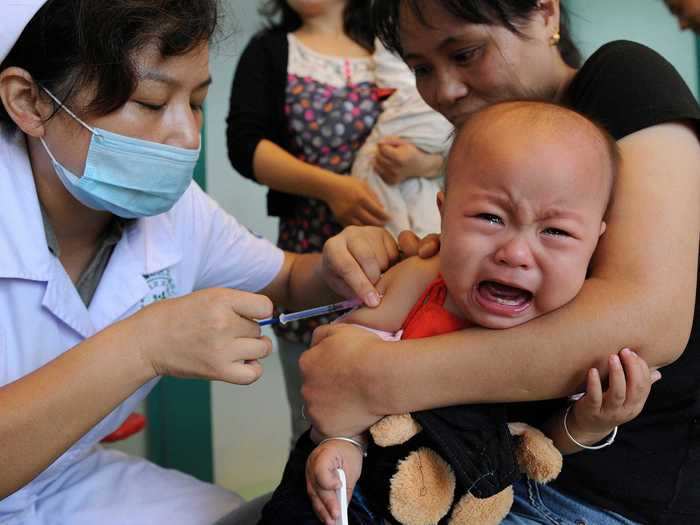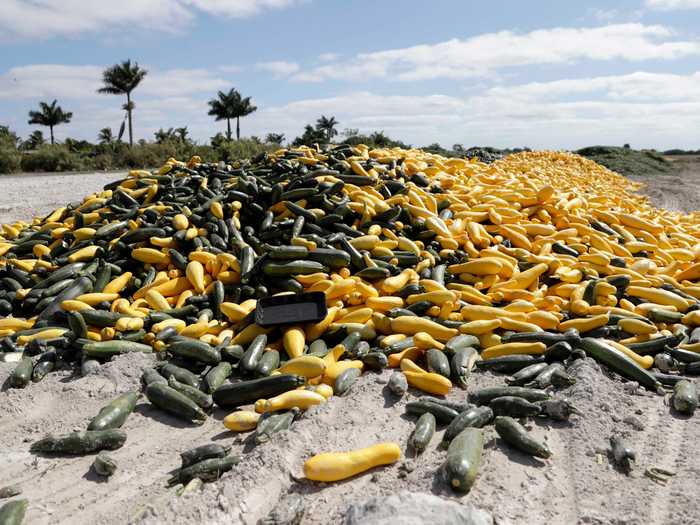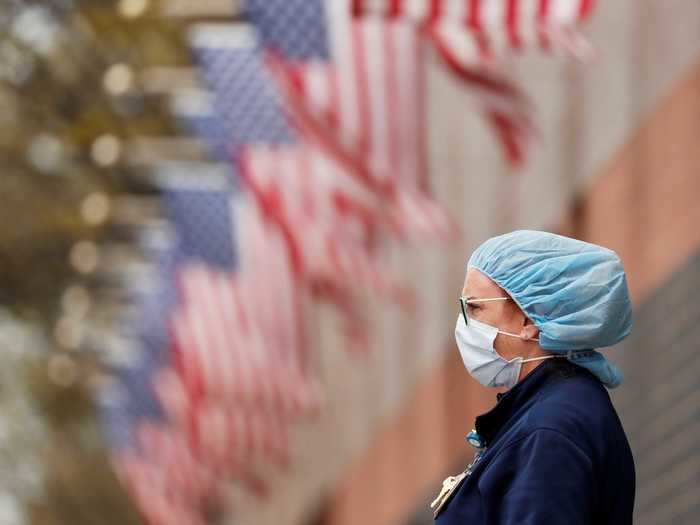The coronavirus pandemic has led to an increase in the amount of rhinos being poached, and caused millions of pounds of fresh food to be destroyed.Reuters
- The coronavirus pandemic is affecting nearly every aspect of life, but some issues are less visible.
- Aside from the virus's direct death toll, causalities from other illnesses, as well as the destruction of food, alcohol, wildlife, and tourism have persisted.
- Here are some ongoing ways the coronavirus is affecting daily life, in a more hidden way.
- Visit Insider's homepage for more stories.
In just two months, the coronavirus pandemic has rapidly shifted life as we know it. Schools, restaurants, offices, and entertainment have shuttered. Millions of Americans have lost their jobs, and healthcare systems across the globe have been dramatically overwhelmed.
The effects of the pandemic can be felt across nearly every aspect of life, but some causalities from the virus have been less obvious.
From the destruction of fresh crops to an increased threat to African wildlife, here's an ongoing list of ways the coronavirus pandemic has created problems in less visible areas.
Read the original article on
Insider
The pandemic has forced breweries across the country to dump hundreds of gallons of draft beer down the drain, as bars and restaurants remain shuttered.
Business Insider Video
Breweries began to feel the weight of the coronavirus crisis as soon as restaurants and bars started closing.
According to a survey by the Brewers Association of more than 900 breweries at the end of March, 99% reported being affected by the coronavirus, with 95% expecting a decrease in sales within the next month.
Since then, breweries around the country have been forced with closures, layoffs, and dumping products. Draft beer has been hit particularly hard — with sales down over 90%.
In one Minneapolis brewery, brewers were forced to send more than 900 gallons of perfectly drinkable beer down the drain. For many small brewers, kegging or canning unsold beer would be a costly expense, and beer can only survive for so long until it experiences a decline in freshness and quality.
"It was a painful decision, and not one that we have ever had to make," Drew Hurst, the director of operations at Bauhaus Brew Labs told The New York Times. "There was literally nothing that we could do with it."
But there is one silver lining: some brewers have pivoted to produce hand sanitizer.
An estimated 400 million flowers — including 140 million Dutch tulips — were destroyed over the month of March due to a decline in sales.
Tulip fields.
LoweStock
With flower shops around the world shuttered, and celebrations canceled, the demand for flowers has plummeted.
Typically, the period from March through May — which includes Mother's Day, Easter, and International Women's Day — is the flower industry's strongest season. But a decline in open stores and events have caused sales to drastically decline.
In the Netherlands, an estimated 400 million flowers, including 140 million tulip stems, were destroyed throughout the month of March.
Since tourism and funding for conservation efforts has declined, poachers have killed more Rhinos in Africa, and endangered wildlife face greater threats.
Zanrie Van Jaarsveld feeds orphaned rhinos Kolisi and Amelia, amid the spread of the coronavirus disease (COVID-19), at a sanctuary for rhinos orphaned by poaching, in Mookgopong, Limpopo province, South Africa, on April 17, 2020.
REUTERS/Siphiwe Sibeko
Higher poaching rates of rhinos have occurred in parts of Africa that would typically be booming with tourism. But since the coronavirus pandemic has put a halt on wildlife tourism — which provides funding and protection for conservation efforts — poachers are finding it easier to hunt endangered species.
"These animals are not just protected by rangers, they're also protected by tourist presence," Tim Davenport, director of species conservation programs for Africa at the Wildlife Conservation Society, told The New York Times.
"If you're a poacher, you're not going to go to a place where there are lots of tourists, you're going to go to a place where there are very few of them."
A large portion of funding for wildlife conservation comes directly from tourism. In South Africa, roughly 85% of wildlife protection funding came from tourism in 2018, according to The Times.
Thousands of vaccinations have been canceled, putting children across the world at higher risk of contracting other diseases.
A child cries as he receives a measles vaccination at a health center in Hefei, Anhui province September 11, 2010.
Reuters
The World Health Organization has warned that children around the world could be at risk of contracting other diseases, since vaccinations have largely been halted.
"The tragic reality is children will die as a result," WHO Director-General Tedros Adhanom Ghebreyesus said.
At least 24 countries are experiencing shortages in vaccinations due to travel restrictions and lockdown orders meant to quell the coronavirus outbreak.
The WHO said immunization for diseases such as polio and measles have been postponed across the globe, and healthcare for malaria and other viruses have been disrupted.
An estimated 117 million children are set to miss their measles vaccination because of the coronavirus pandemic. The WHO is urging countries to ensure vaccination programs remain funded and said the Global Alliance for Vaccines and Immunization requires $7.4 billion to immunize 300 million children in the next five years.
The agency also recommended countries implement tracking programs for children who miss their vaccines this year.
Additionally, experts fear that while the focus remains on battling the new coronavirus, the medical community could lose the fight against diseases such as tuberculosis, polio, and HIV/AIDs.
Tens of millions of pounds of fresh food have gone to waste as farmers struggle to sell produce.
A pile of ripe squash sits in a field, in Homestead, Fla. Thousands of acres of fruits and vegetables grown in Florida are being plowed over or left to rot because farmers can't sell to restaurants, theme parks or schools nationwide that have closed because of the coronavirus.
AP Photo/Lynne Sladky
Dumped milk, plowed lettuces, buried onions: tens of millions of pounds of fresh food have gone to waste in the US.
With the closure of bulk food buyers, including restaurants, hotels, universities, and theme parks, typical demand for fresh produce has plummeted. Struggling farmers have been left with the difficult decision to destroy their own crops.
Though many have tried to donate their produce to charities or food banks, the short shelf-life of produce and limitations on space have made that difficult. And packaging and transporting food to other areas of need are extra costs for farmers who are already struggling.
Farmer Tony DiMare told the Miami Herald: "It's catastrophic. It's a dire situation, and there's no relief in sight."
And though the federal government launched a $3 billion program to buy and redistribute fresh food from farmers, many complained that the initiative came too late – the mass destruction of milk, vegetables, and fresh fruits had already begun.
The coronavirus pandemic has caused cancer patients, those who need organ transplants or blood transfusions, and others with preexisting illnesses to face difficulty receiving treatment.
FILE PHOTO: Coronavirus disease (COVID-19) outbreak, in New York
Reuters
In some cases, overwhelmed hospitals across the country have caused those with other illnesses to be pushed to the backburner.
As the US faces a shortage of blood, ICU beds, doctors, nurses, ventilators, and more, many surgeries and treatments for cancer and other diseases have been set aside. The unknown nature of the coronavirus pandemic has transitioned much of the healthcare system's focus toward the virus.
According to a survey by the American Cancer Society's Cancer Action Network, nearly one in four cancer patients reported delays in receiving care because of the COVID-19 pandemic. Patients have had immunotherapy treatments postponed, surgeries rescheduled, and radiation treatments set aside.
The number of organ donations and transplants has significantly decreased because of the pandemic, and even brain surgeries have been put on hold in some cases. Additionally, a shortage of blood across the country has made treatment for other illnesses more difficult to come by.
One woman, whose husband died from blood cancer and couldn't get the transfusions he needed to begin chemotherapy treatments amid the pandemic, told The New York Times that the coronavirus shortages sped up his death.
"People like my husband now are dying not because of COVID, but because the healthcare system just cracked open and swallowed them up," she said.

